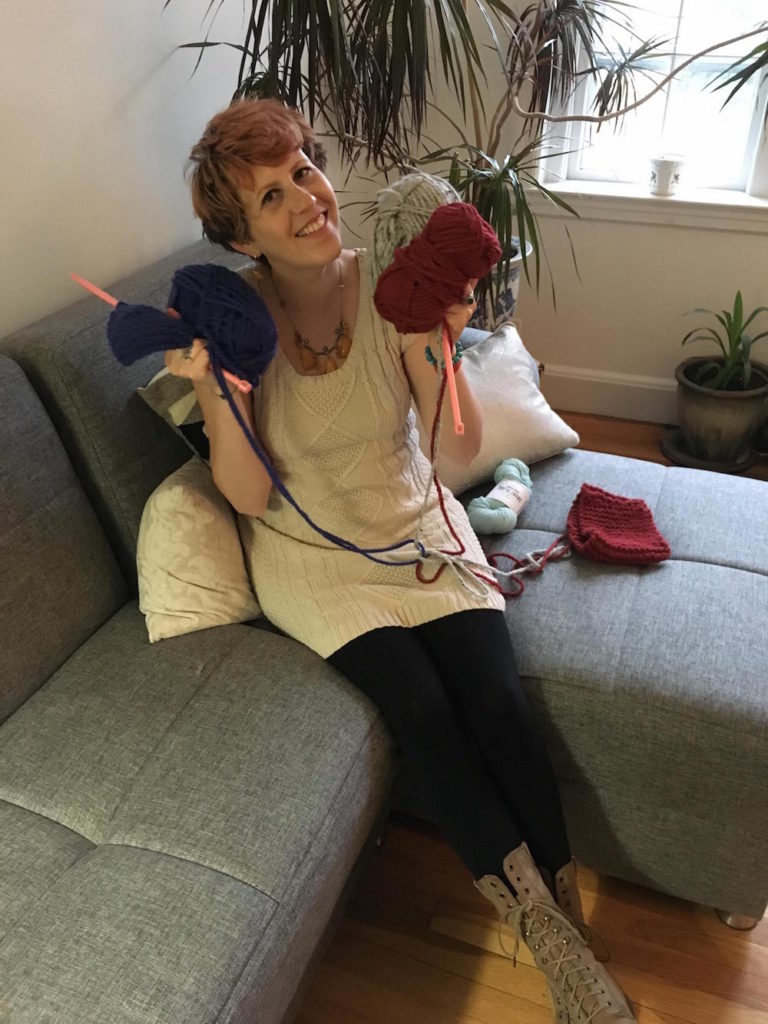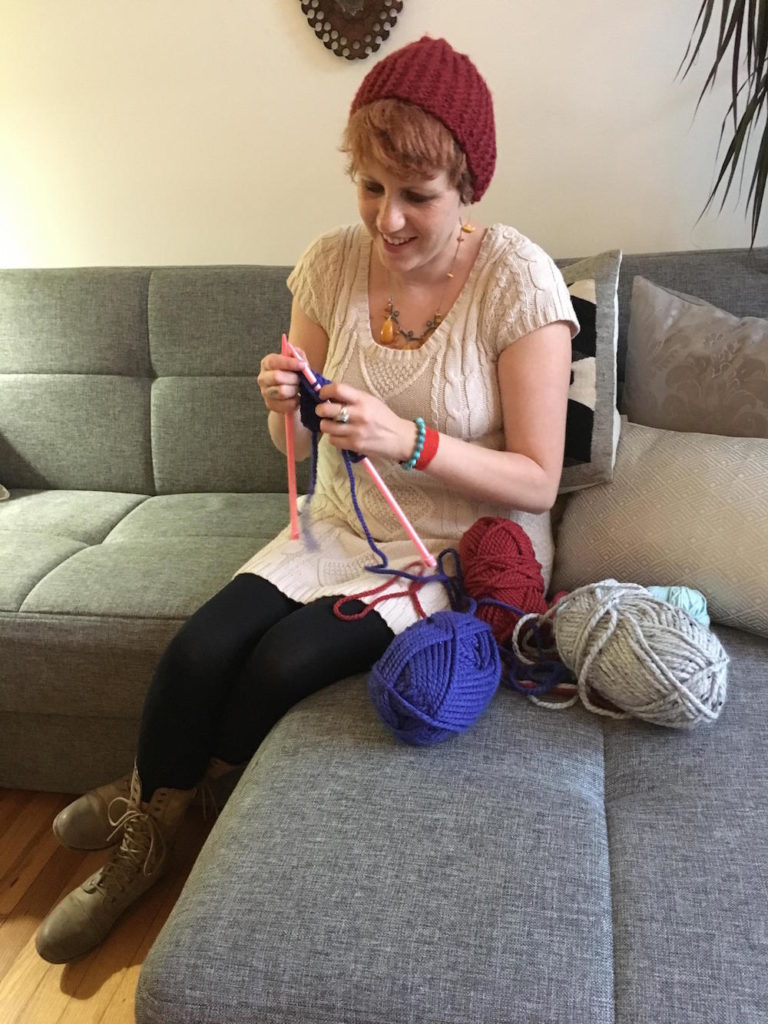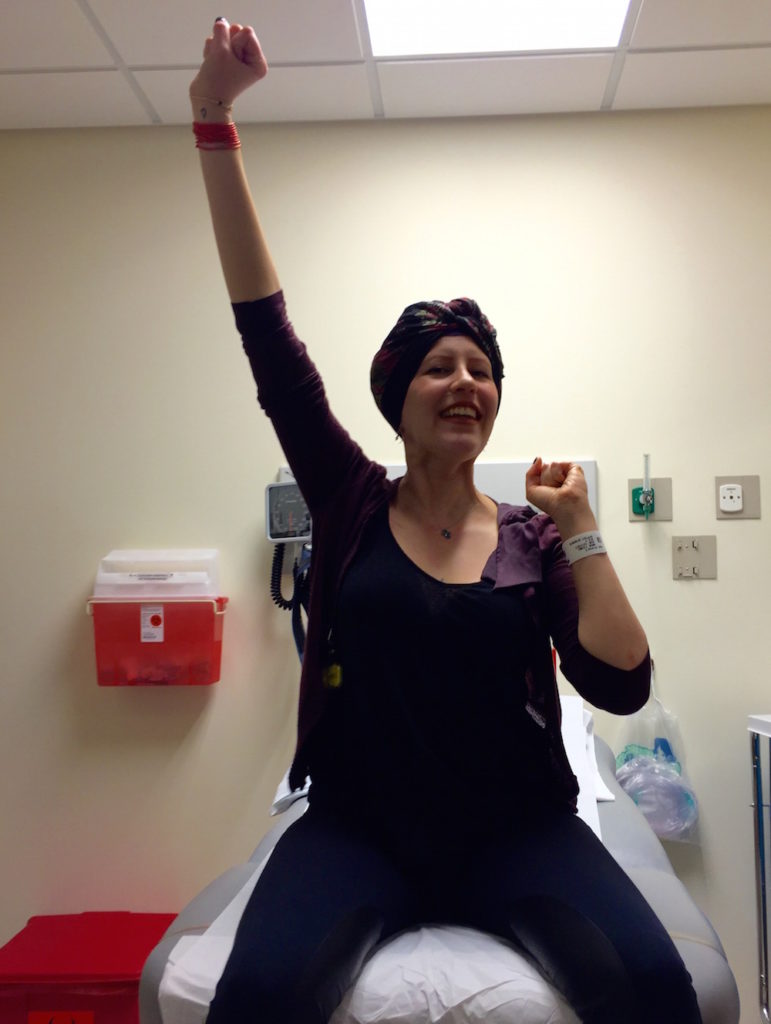Sitting recently in Dana-Farber’s Healing Garden, Kireina Bell Sancho focuses on her task. She slowly works navy blue yarn through her needles, drawing the yarn back and forth to form the base of a headband – a gift for her sister.
She says the repetitive motion, which requires both attention and precision, has been stress-relieving during a difficult time: breast cancer recovery.
Sancho, now 39, was diagnosed in January 2016 with an aggressive type of breast cancer that had already begun to spread to her lymph nodes. BRCA1-positive, she immediately started treatment at Dana-Farber’s Susan F. Smith Center for Women’s Cancers: chemotherapy, a lumpectomy and lymph node removal, radiation, and, finally, an oophorectomy – ovary removal – to lessen her chance of developing ovarian cancer later in life.
But for Sancho, treatment was about much more than medical appointments.
“I made the decision to use my attitude as a tool to help me during treatment,” she recalls.
For her, this meant seeing a social worker to address the challenges that accompany a cancer diagnosis, and taking part in support programs through the Young and Strong Program for Young Women with Breast Cancer and Dana-Farber’s Young Adult Program. Sancho attended forums, workshops, and conferences, and also explored integrative therapies through Dana-Farber’s Zakim Center.
One of the programs that helped her most was a new collaboration between Young and Strong, the Young Adult Program, and Sh*t That I Knit, a Cambridge, Mass., company giving back to young adults with cancer through “knit kits.” Each kit, distributed by Dana-Farber social workers, contains yarn and needles donated by Lion Brand Yarn, video tutorials created by Hive Studio, and a bag from Emulsion Printing House to carry their materials.
Sancho – who had never knit before – attended a workshop in March for young Dana-Farber patients, where she first experienced the therapeutic benefits of knitting, and met others experiencing similar emotional and physical challenges.
 “It was really healing and felt very much in line with how I was starting to cope after active treatment,” Sancho explains. “Learning to knit is such a slow process, and with healing in general, you can’t just jump in and expect everything to fall into place right away.”
“It was really healing and felt very much in line with how I was starting to cope after active treatment,” Sancho explains. “Learning to knit is such a slow process, and with healing in general, you can’t just jump in and expect everything to fall into place right away.”
While Sancho is finished with the hardest parts of treatment, she will be on hormone therapy for five years to lessen her risk of recurrence. But with a pair of knitting needles now in her cancer toolkit, and new connections with fellow patients, she is prepared for whatever comes her way.
Learn more about supportive services for young adults with cancer. If you are a young adult treated at Dana-Farber interested in learning how to knit, contact yap@dfci.harvard.edu for information on getting your own knit kit.


